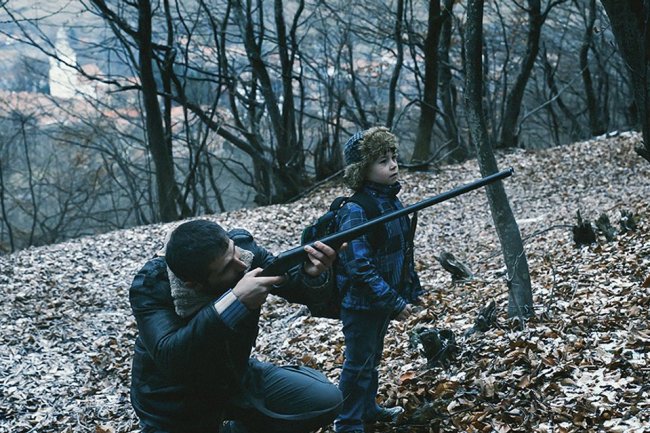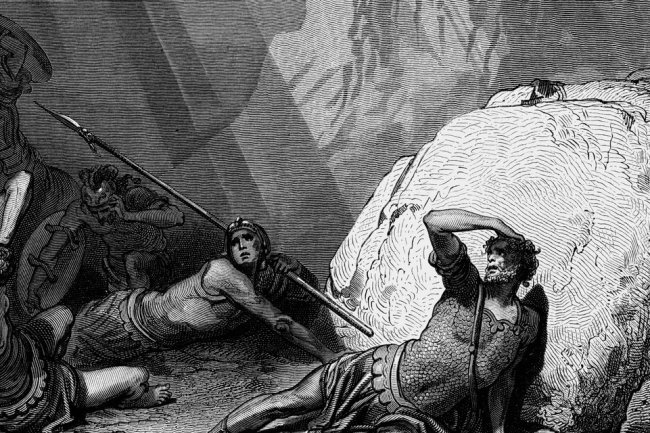Ralph Vaughan Williams in the Bard Music Festival’s Limelight
‘Vaughan Williams and His World,’ a program of concerts, lectures and discussions, pays homage to a British composer whose works—from symphonies to operas to songs—transformed 20th-century music By Barrymore Laurence Scherer Aug. 2, 2023 5:57 pm ET Ralph Vaughan Williams Photo: Bettmann Archive/Getty Images Annandale-on-Hudson, N.Y. Ralph Vaughan Williams (1872-1958) isn’t just one of the most important 20th-century British composers; he is one of the supreme figures of 20th-century music. Yet, though he wrote in almost every genre of composition—symphonies, operas, chamber music, choral music and songs—he is best known for a relative handful of works: the fantasias on “Greensleeves” and on “a Theme by Thomas Tallis ”; “The Lark Ascending”; the “Serenade to Music”; and his uproarious Overture


Ralph Vaughan Williams
Photo: Bettmann Archive/Getty Images
Annandale-on-Hudson, N.Y.
Ralph Vaughan Williams (1872-1958) isn’t just one of the most important 20th-century British composers; he is one of the supreme figures of 20th-century music. Yet, though he wrote in almost every genre of composition—symphonies, operas, chamber music, choral music and songs—he is best known for a relative handful of works: the fantasias on “Greensleeves” and on “a Theme by Thomas Tallis ”; “The Lark Ascending”; the “Serenade to Music”; and his uproarious Overture to Aristophanes’ “The Wasps” with its menacing, buzzing trill for the strings.
Over the weekends of Aug. 4-6 and Aug. 10-13, the Bard Music Festival’s “ Vaughan Williams and His World” will present his works in the context of British and European music written during his long life, especially by those composers who influenced him and whom he himself influenced. Enhanced with lectures and panel discussions, as well as two special events featuring his Mass in G-minor and other music showcasing the historic, newly restored organ of the Church of the Messiah, in the nearby town of Rhinebeck, the themed concerts will offer a sweeping exploration of Vaughan Williams’s oeuvre. Representative works on the programs include his early Quintet in C-minor; his Concerto in D-minor; “Job, a Masque for Dancing”; the Concerto in C for Two Pianos and Orchestra; the sensuous “Flos campi,” inspired by erotic verses from the biblical Song of Solomon; and the Shakespeare-inspired opera “Sir John in Love.” Performances will also feature music by Béla Bartók, Samuel Coleridge-Taylor, Max Bruch, Frederick Delius, Edward Elgar, Noël Coward, Jean Sibelius, Ethel Smyth and Herbert Howells, among others.
Vaughan Williams was descended from a distinguished family; his paternal side boasted several generations of eminent jurists, while on his maternal side he was the great-great-grandson of Josiah Wedgwood (founder of the pottery dynasty) and the great nephew of Charles Darwin. His composing talent emerged fairly late and relatively slowly, but he lived to be revered as English music’s grand old man.
Yet for a composer so thoroughly identified with British music, Vaughan Williams had enjoyed a notably cosmopolitan education: After study at London’s Royal College of Music (1890-92), he entered Cambridge University for three years, receiving bachelor’s degrees in music and history in 1894 and 1895 before returning to the RCM for continued study. His two most important composition teachers during this period were the prickly Charles Villiers Stanford and his more genial counterpart, Hubert Parry, leading architects of the late-19th-century progressive movement called the English Musical Renaissance. Thereafter, he studied with Bruch in Germany and ultimately with Maurice Ravel in France. He absorbed further ideas through his close friendship with fellow composer Gustav Holst.
In the decades after World War I, when European music was assimilating modernist ideas propounded by Schoenberg, Stravinsky and Bartók, Vaughan Williams appeared to be something of a throwback. Instead of adopting avant-garde serial techniques or atonality, he forged his own compositional language in what might best be characterized as radical traditionalism. Famously influenced by English folk song and hymnody, he also sought through his love of Bach to liberate his personal creativity from the plush Romanticism of Mendelssohn, Gounod, Wagner and Brahms that had held later 19th-century English music in its thrall. Certainly his music in all its varied moods and manners often captures the recognizable character of the British Isles, the fortitude of its people, the clamor of its cities, the Gothic majesty of its cathedrals and the fabled beauty of its green and pleasant landscape. During a telephone interview with me, however, Bard Music Festival co-artistic director Leon Botstein noted that, “while a composer like Frederick Delius has an unmistakable stylistic fingerprint, Vaughan Williams doesn’t have a single style. Instead of aligning himself with a specific musical faction, he aimed at the renewal of tradition in the modern world. This wasn’t a reactionary effort to return to the past, but a fight against the threat of modernity cutting off the past.”
Illustrative of the comfortable stylistic variety in Vaughan Williams’s thinking, he could complete an uncompromisingly dissonant work like the F-minor Symphony (No.4) in 1934, and four years later write the gently Impressionistic “Serenade to Music” to lines from the exquisite nocturnal scene in the final act of Shakespeare’s “The Merchant of Venice.” This dreamy score, written as war increasingly threatened Europe, recalls the language of “The Lark Ascending,” composed as war loomed in 1914.
Vaughan Williams declared in a 1902 magazine article that “What we want in England is real music, even if it be only a music-hall song, provided it possesses real feeling and real life.” This element will be explored here in a program titled “London Calling! Fun in Cockaigne!” featuring 19th- and 20th-century English popular music, as well as selections from his rarely presented “romantic extravaganza” (as he himself styled it), “The Poisoned Kiss.”
By presenting familiar works and arcana by Vaughan Williams in the context of work by composers ranging from Elgar, Bartók and Ravel to Barber, Tippett and Britten, the festival promises to offer fresh insights into both Vaughan Williams and British music during the past two centuries.
—Mr. Scherer writes about music and the fine arts for the Journal.
What's Your Reaction?













